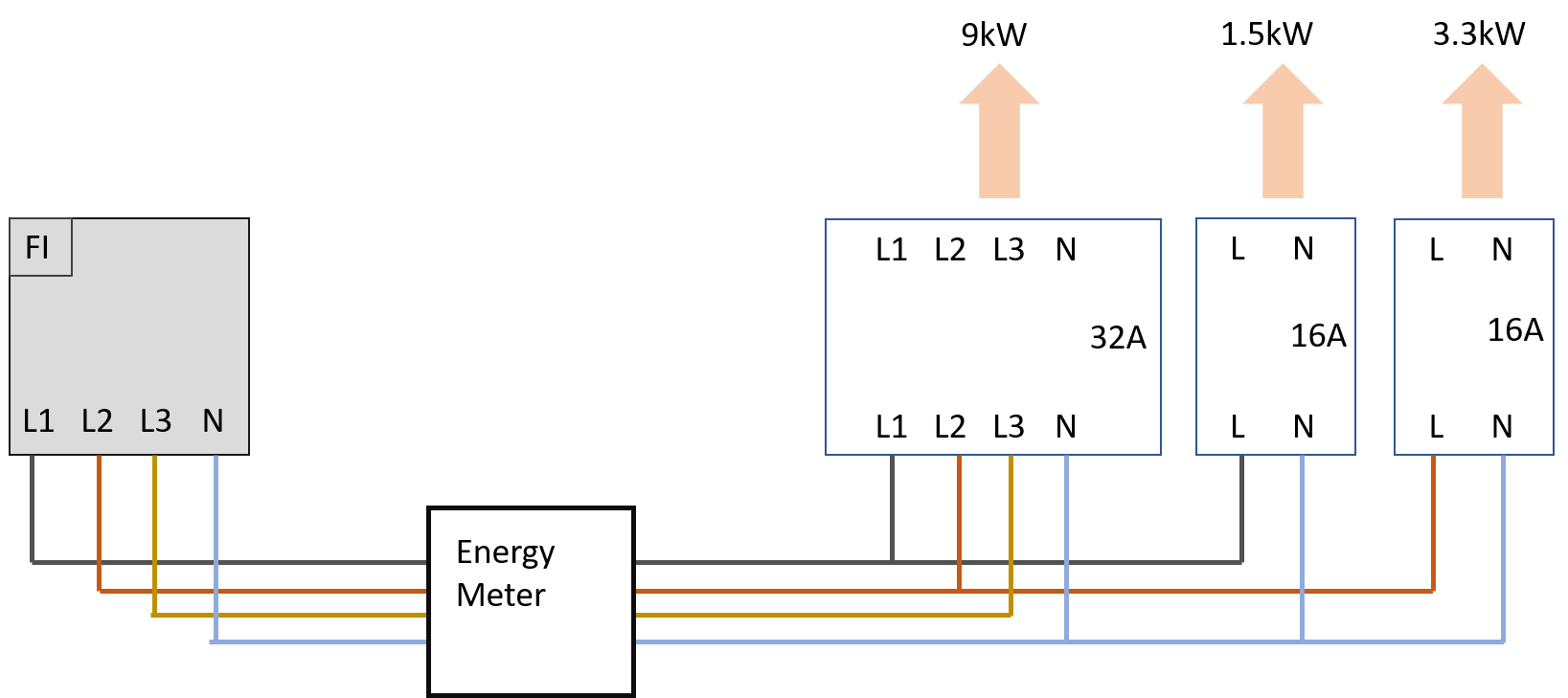I recently got a new heat pump which has 3 parts:
- Indoor pump
- Outdoor pump
- electrical heater
The picture below shows the configuration in the fuse box

Before the main fuse (FI in my country 230V@50Hz) is an energy meter SDM-72 to monitor the heatpumps power consumption. In the specs the basic current is rated at 10A and the maximum rated current at 100A.
From my simple calculation I get
- L1: 13A + 6.5A ~ 20A
- L2: 13A + 14.3A ~ 28A
- L3: 13A
This would mean, that the energymeter is always operated over the basic current, which affects its accuracy and lifespan. Should I replace it with an higher rated energy meter?
Also there is some concern of the position of the energy meter since the FI should trigger when a delta current of 30mA is recognized. If there is an additional consumer between the FI and the circuit breaker there is also an additional impedance which might delay the reaction of the FI. Should the energy meter before or after the FI?
